Stefania has been invited to participate in the keynote panel on “techno science from below” at the 7th conference of the Science and Technology Studies (STS) Italia association, in Padova in June 14-16. Check out the conference program.


Stefania has been invited to participate in the keynote panel on “techno science from below” at the 7th conference of the Science and Technology Studies (STS) Italia association, in Padova in June 14-16. Check out the conference program.
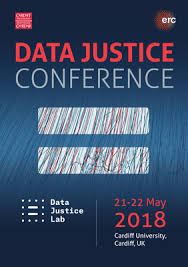
Stefania will present on “Questioning data universalism” with Emiliano Treré (Cardiff University) and she will be chairing the session on Data Activism (14.00 – 15.30 Parallel Sessions B).
Becky will present on “It Depends On Your threat Model: Understanding strategies for uncertainty amidst digital surveillance and data exploitation” as part of the Civil Society and Data (chair: Isobel Rorison).
About the data justice conference (website, program)
Date: 21-22 May 2018
Location: Cardiff University, Cardiff, UK
Host: Data Justice Lab, Cardiff University, Cardiff, UK
The collection and processing of massive amounts of data has become an increasingly contentious issue. Our financial transactions, communications, movements, relationships, all now generate data that are used to profile and sort groups and individuals. What are the implications for social justice? How do we understand social justice in an age of datafication? In what way do initiatives around the globe address questions of data in relation to inequality, discrimination, power and control? What is the role of policy reform, technological design and activism? How do we understand and practice ‘data justice’? How does data justice relate to other justice concerns?
This conference will examine the intricate relationship between datafication and social justice by highlighting the politics and impacts of data-driven processes and exploring different responses. Speakers include Anita Gurumurthy (IT for Change, India), David Lyon (Queen’s University, Canada), Evelyn Ruppert (Goldsmiths, University of London, UK), Rob Kitchin (Maynooth University, Ireland), Sasha Costanza-Chock (MIT Center for Civic Media, US), Seeta Peña Gangadharan (London School of Economics, UK), Solon Barocas (Cornell University, US and FAT/ML).
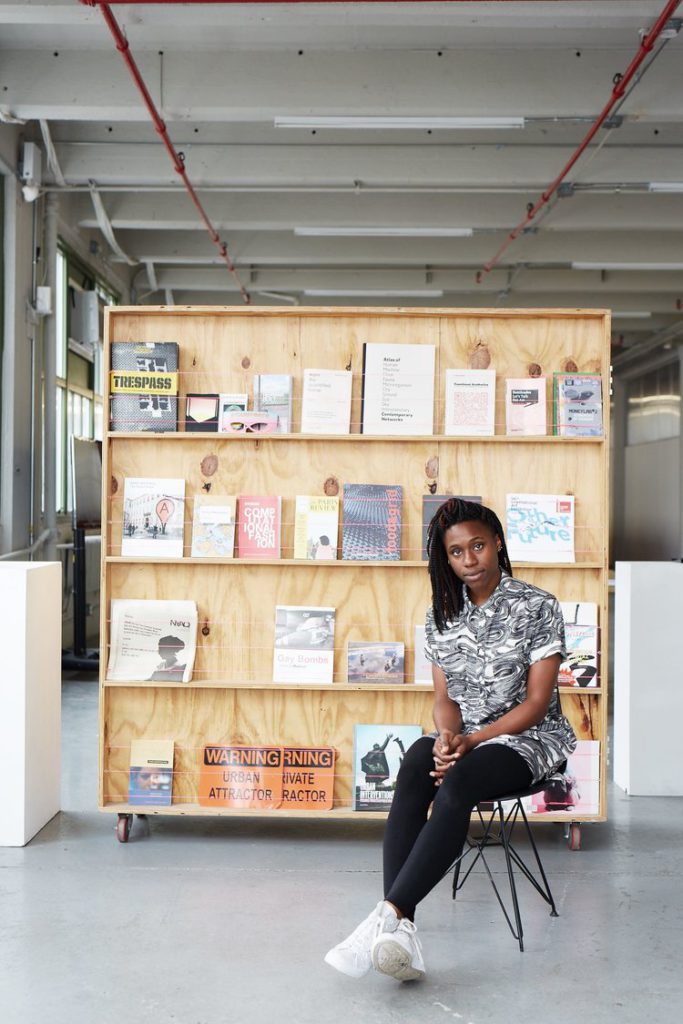
Next Wednesday, the artist and researcher Mimi Onuoha will be with us for another session of the DATACTIVE speaker series.
Mimi Onuoha is a Nigerian-American, Brooklyn-based artist and researcher whose work examines the implications of data collection and computational categorization. She uses code, writing, interventions, and objects to explore missing data and the ways in which people are abstracted, represented, and classified.
If you’re around Amsterdam and wish to attend, drop a line to guillen@data-activism.net.
Cheers!

DATACTIVE is proud to announce the publication of the special issue on ‘data activism’ of Krisis: Journal for Contemporary Philosophy. Edited by Stefania Milan and Lonneke van der Velden, the special issue features six articles by Jonathan Gray, Helen Kennedy, Lina Dencik, Stefan Baack, Miren Gutierrez, Leah Horgan and Paul Dourish; an essay by, and three book reviews. The journal is open access; you can read and download the article from http://krisis.eu.
Jonathan Gray starts off this special issue by suggesting how data can be involved in providing horizons of intelligibility and organising social and political life. Helen Kennedy’s contribution advocates for a focus on emotions and everyday lived experiences with data. Lina Dencik puts forward the notion of ‘surveillance realism’ to explore the pervasiveness of contemporary surveillance and the emergence of alternative imaginaries. Stefan Baack investigates how data are used to facilitate civic engagement. Miren Gutiérrez explores how activists can make use of data infrastructures such as databases, servers, and algorithms. Finally, Leah Horgan and Paul Dourish critically engage with the notion of data activism by looking at everyday data work in a local administration. Further, this issue features an interview with Boris Groys by Thijs Lijster, whose work Über das Neue enjoys its 25th anniversary last year. Lastly, three book reviews illuminate key aspects of datafication. Patricia de Vries reviews Metahavens’ Black Transparency; Niels van Doorn writes on Platform Capitalism by Nick Srnicek and Jan Overwijk comments on The Entrepeneurial Self by Ulrich Bröckling.
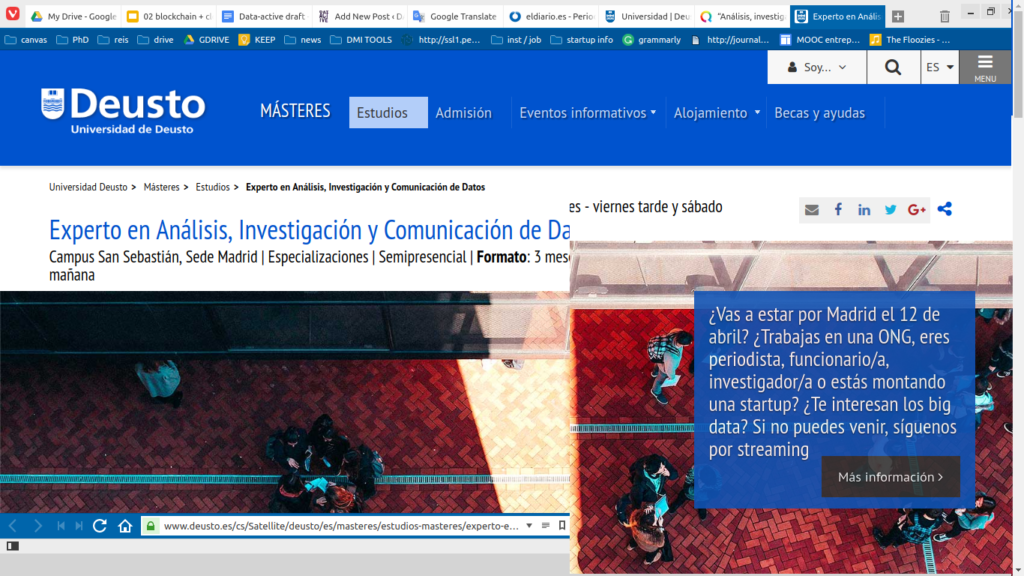
DATACTIVE Research Associate Miren Gutierrez organised a follow-up of the ‘Data for the Social Good’ event (Amsterdam, November 2017). The debate will take place in Madrid on Thursday the 12th of April. You can check out the impressive line-up in the description of the event (in Spanish).
Cuándo: 12 de abril, jueves, de 16:00 a 18:00
Dónde: Sede de la Deusto Business School, calle Castelló, 76, Madrid
Cuatro comunidades confluyen con frecuencia en la realización de proyectos de datos con impacto social: las organizaciones que transfieren habilidades, crean plataformas y herramientas, y generan oportunidades de encuentro; las catalizadoras, que proporcionan los fondos y los medios; las que producen periodismo de datos, y las activistas. Sin embargo, en pocas ocasiones las vemos debatir juntas en público.
Te proponemos una conferencia, organizada por el Programa “Análisis, investigación y comunicación de Datos” de la Universidad de Deusto, que sienta en un panel a representantes de estos cuatro grupos para hablar de cómo pueden los datos ayudar a una transformación social en favor de las personas y el medioambiente, qué oportunidades de colaboración existen y qué otras están por crearse.
Habla con nosotros/as Mar Cabra, una conocida periodista de investigación y especialista en análisis de datos que ha estado al frente de la Unidad de Datos e Investigación del Consorcio Internacional de Periodistas de Investigación, ganador del premio Pulitzer de 2017 con la investigación conocida como “Los papeles de Panamá”.
Ignacio Jovtis es el Responsable de Investigación y Políticas de Amnistía Internacional en España. AI usa testimonios, cartografía digital datos y fotografía satelitales para denunciar y producir evidencias de abusos de los derechos humanos en la guerra en Siria, de la apropiación militar de tierras en pueblos rohingyas y sobre la crisis de refugiados en el Mediterráneo.
También nos acompaña Juan Carlos Alonso, Diseñador de Vizzuality, una organización creada para hacer del diseño de datos un impulsor del cambio. Vizzuality ofrece aplicaciones que ayudan a la mejor comprensión de los datos a través de su visualización para comprender procesos como la deforestación, la preparación para los desastres, el flujo mundial del comercio de productos agrícolas o la acción contra el cambio climático en todo el mundo.
Juanlu Sánchez es otro conocido periodista. Cofundador y subdirector de eldiario.es, está especializado en contenidos digitales, nuevos medios y fórmulas de sostenibilidad para el periodismo independiente como el modelo de socios de eldiario.es. Ha dirigido y colaborado en diversas investigaciones basadas en datos, como por ejemplo la de las tarjetas black de Bankia.
Adolfo Antón es el Responsable del DataLab del Medialab-Prado, desde donde ha dirigido la experimentación, producción y divulgación de proyectos en torno a la cultura de los datos y el fomento de los datos abiertos. Adolfo ha sido representante del Open Knowledge Foundation España, una organización dedicada a financiar y fomentar los proyectos de datos, entre otros.
Modera Miren Gutiérrez, directora del Programa de postgrado “Análisis, investigación y comunicación de datos” e investigadora de la Universidad de Deusto. Miren está por publicar un libro titulado Data activism and social change, precisamente sobre los datos y la transformación social. La conferencia será recogida en imágenes y compartida por el reconocido facilitador gráfico Jorge Martin, quien tomará nota de las propuestas e ideas planteadas por los/as panelistas y participantes.
Tanto si quieres saber qué se está haciendo con los datos para mejorar el mundo como si quieres imaginar qué puedes hacer tú, te invitamos a participar en este debate que no pretende ser una conferencia al uso, sino un diálogo interactivo, abierto, dinámico y participativo entre todos/as los/as presentes.
Entrada libre hasta completar aforo.

On Tuesday March 21th, DATACTIVE will host an informal luncheon seminar with socio-legal scholar and activist Angela Daly (Queensland University of Technology & Tilburg Institute for Law, Technology and Society). You are welcome to join! Angela will give a presentation titled ‘reflections on socio-legal studies (and activism) of data’. For more info, you can find Angela’s paper ‘Data and Fundamental Rights’ (2017) here, and visit Angela’s website: https://angeladaly.com/
Bio
I am a socio-legal scholar of technology with interest in the Internet, 3D Printing and renewable energy. I am Vice Chancellor’s Research Fellow in Queensland University of Technology’s Faculty of Law, and a research associate at the Tilburg Institute for Law, Technology and Society (TILT) in the Netherlands. My books, Socio-Legal Aspects of the 3D Printing Revolution, published by Palgrave Macmillan, and Private Power, Online Information Flows and EU Law: Mind the Gap, published by Hart, are out now!
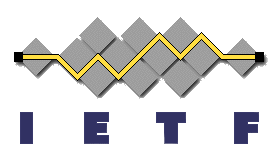
This weekend the DATACTIVE team will be joining the IETF101 hackathon to work on quantitative mailing-list analysis software. The Internet Engineering Taskforce (IETF) is the oldest and most important Internet standard setting body. The discussions and decisions of the IETF have fundamentally shaped the Internet. All IETF mailing-lists and output documents are publicly available. They represent a true treasure for digital sociologist to understand how the Internet infrastructure and architecture developed over time. To facilitate this analysis DATACTIVE has been contributing to the development of BigBang, a Python-based automated quantitative mailinglists tool. Armed with almost 40 gigabyte worth of data in the form of plain text files, we are eager to boldly discover what no one has discovered before. By the way, we still have some (open) issues, feel free to contribute on Github 🙂
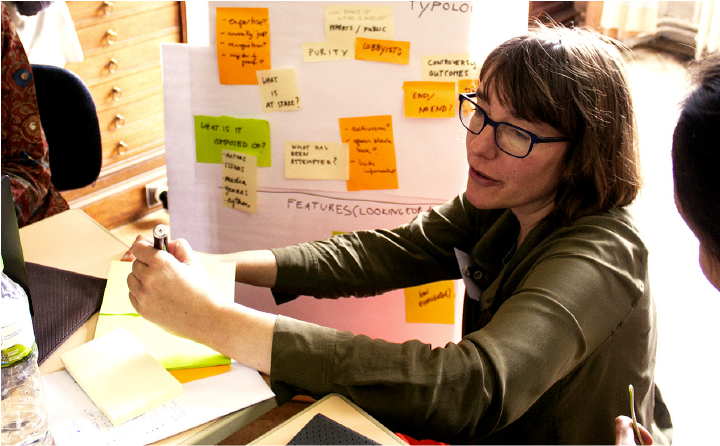
We had the luxury of Noortje Marres (Associate Professor at the Centre for Interdisciplinary Methodologies, Warwick University) joining us for a late breakfast on Friday, February 9th. Over croissants, we touched upon various topics including data politics, and interdisciplinary research: breaking barriers and other intersectionalities.
Noortje Marres is part of the DATACTIVE advisory board, find her bio below:
My work contributes to the interdisciplinary field of Science, Technology and Society (STS) and investigates issues at the intersection of innovation, everyday environments and public politics: participation in technological societies; the role of mundane objects and devices in engagement; living experiments; the changing relations between social life and social science in a digital age. I also work on research methodology, in particular, issue mapping, and am interested in developing creative forms of inquiry between the social sciences, technology and the arts.
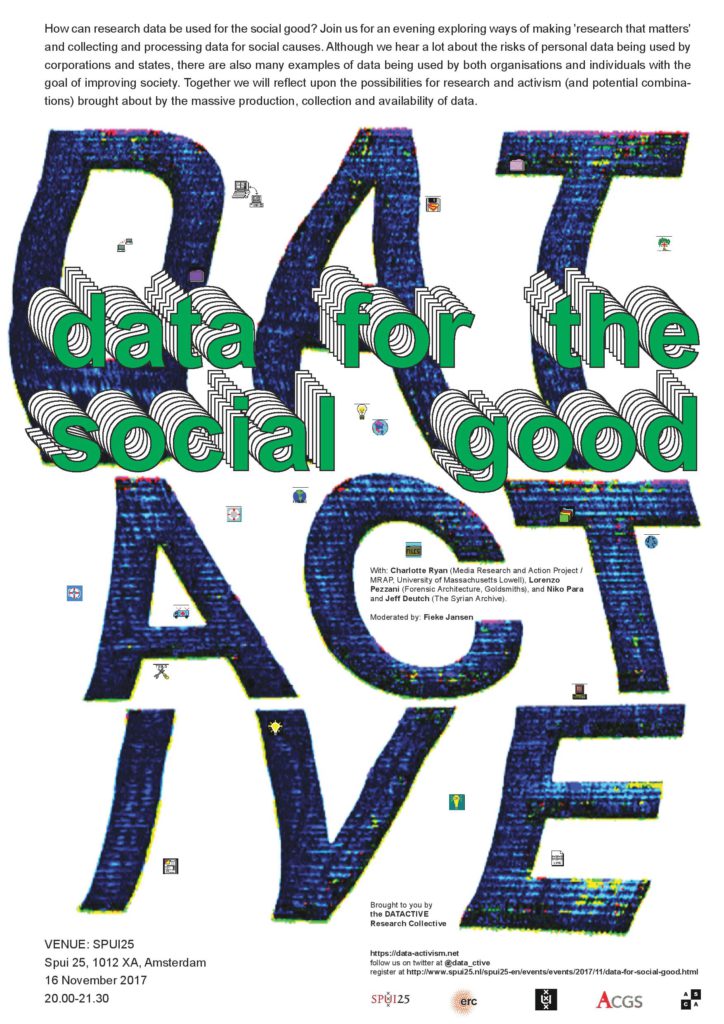
We are happy to share with you the report of our two-day Data for the Social Good event the 16th and 17th of November. The report includes both the first public evening organised at Spui25 *, and our invitation-only second day of lectures in the morning and workshops in the afternoon. To all participants, thank you for joining us for this great event and thanks to Spui25 for hosting us!
Please find the report included below, and do feel free to help share / disseminate our collective findings.
A PDF version can be downloaded here.
Also, we would give our thanks to all the speakers, Charlotte Ryan (Associate Professor of Sociology at the University of Massachusetts), Lorenzo Pezzani (architect and researcher, and lecturer at the Goldsmith University of London), Jeff Deutch (Syrian Archive, PhD candidate at the Humboldt-University in Berlin), Niko Para (Syrian Archive, lead technologist), and moderator Fieke Jansen (independent researcher).
* Click here to watch the public event @Spui25
DATACTIVE_DataSocialGood2017_Report
Data for the Social Good brings together scholars and practitioners to explore the politics of big data from the perspective of activism and civil society.
Data for the Social Good is sponsored by the European Research Council (ERC), the Amsterdam Centre for Globalisation Studies (ACGS) and the Amsterdam School of Cultural Analysis (ASCA).
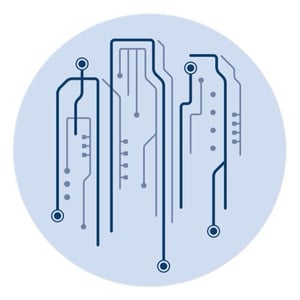
Stefania will take part in ‘Slow computing: A workshop on resistance in the algorithmic age’, organised by Rob Kitchin and Alistair Fraser and hosted by the Programmable City project, the Social Sciences Institute and the Department of Geography of Maynooth University, Ireland. “In line with the parallel concepts of slow food (e.g. Miele & Murdoch 2002) or slow scholarship (Mountz et al 2015), ‘slow computing’ (Fraser 2017) is a provocation to resist”, reads the call for papers. Check out the program and the line-up. Stefania’s presentation is titled “Resist, subvert, accelerate. Towards an ethics of engagement in the age of the computational theocracy”.